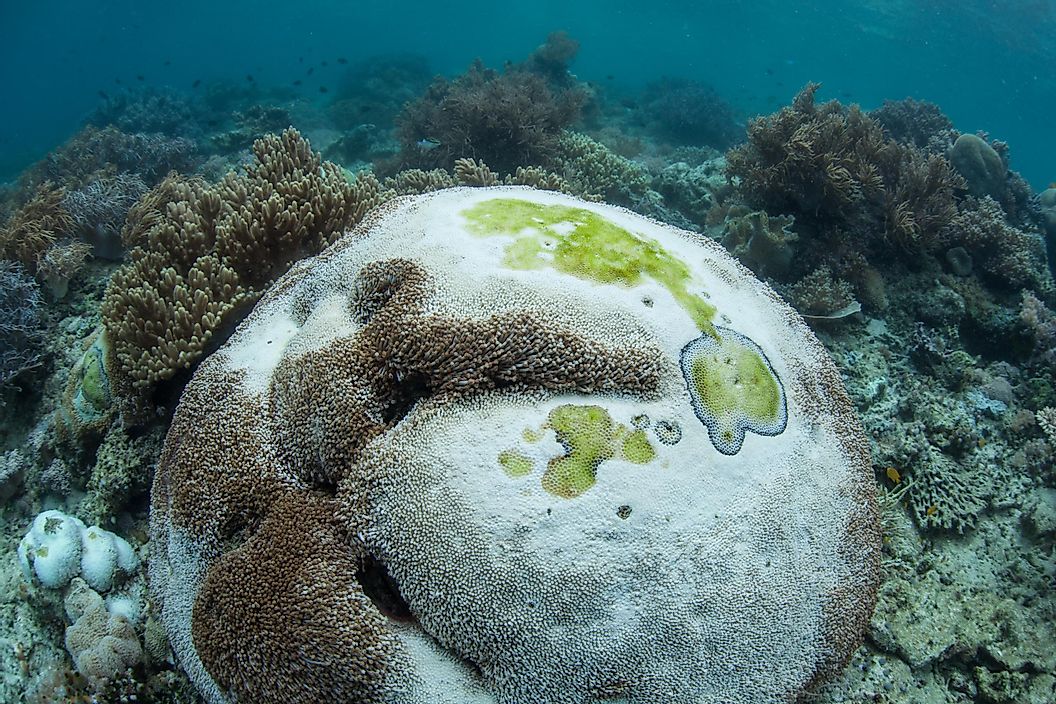an increase in the carbon dioxide levels due to the excessive burning of fossil fuels has led to ocean waters becoming increasingly acidic, a process referred to as ocean acidification. this in turn lowers the pH of ocean water, subsequently affecting the coral reefs around the world. the carbonic acid formed as a result of this acidification process inhibits the ability of the corals to build their calcium carbonate exoskeletons. the weaker skeleton makes coral reefs more vulnerable to diseases and subsequent destruction of the reef framework. studies have also revealed that an increase in acidification leads to a decline in the biodiversity of coral reefs, resulting in the removal of important species that are required for the formation of healthy reefs.
other climate change impacts like rising sea levels, stronger and more frequent tropical storms, and altered ocean circulation patterns (El Nino) also severely affect the coral reefs. due to the rise in sea levels, the coral reefs are predicted to end up much deeper underwater thereby receiving much less sunlight and growing more slowly. the stronger tropical storms cause much larger and more powerful waves which can break the coral branches, overturn the coral colonies and destroy the reef structure.
